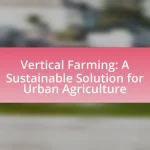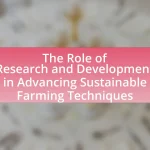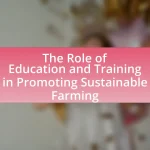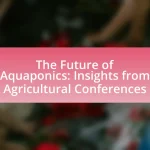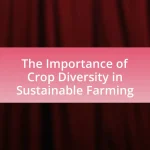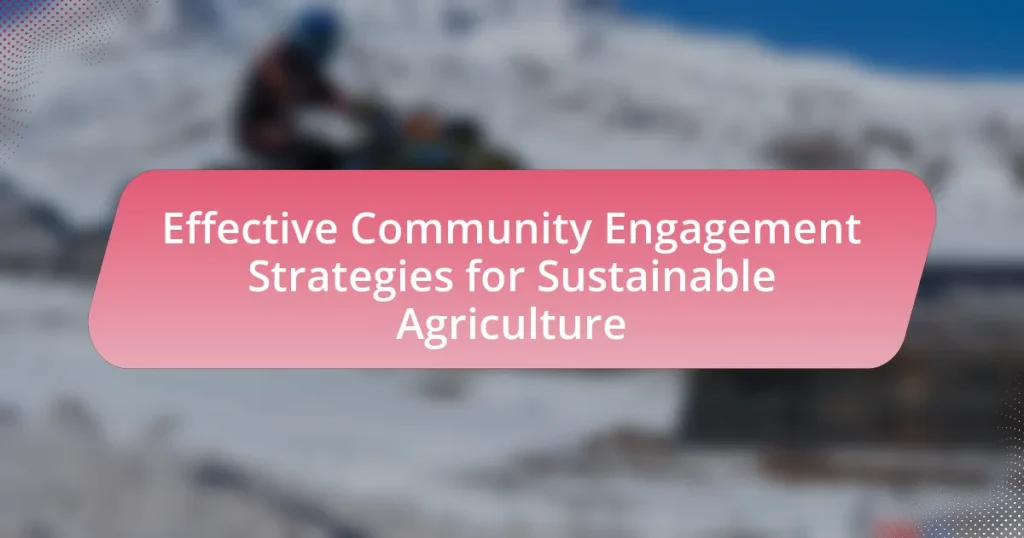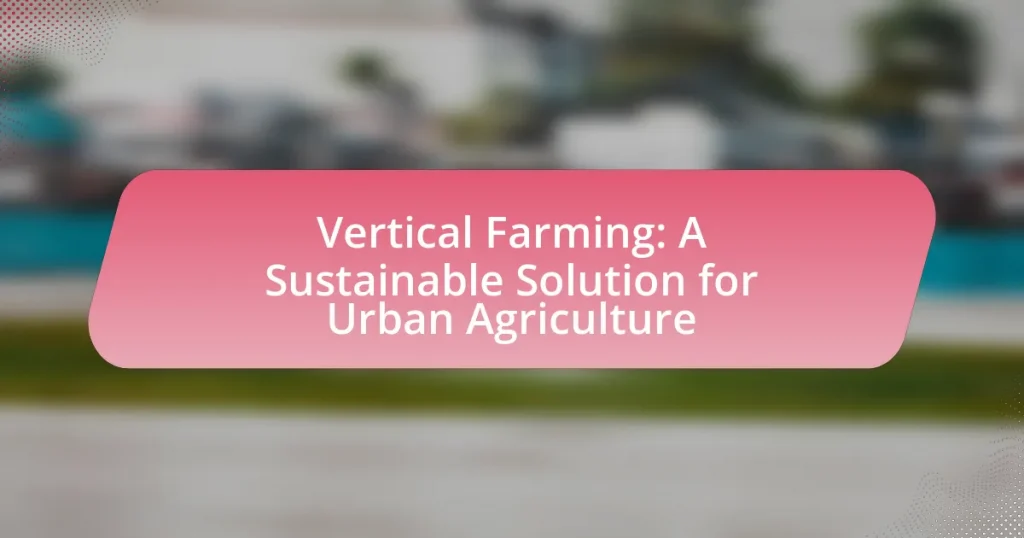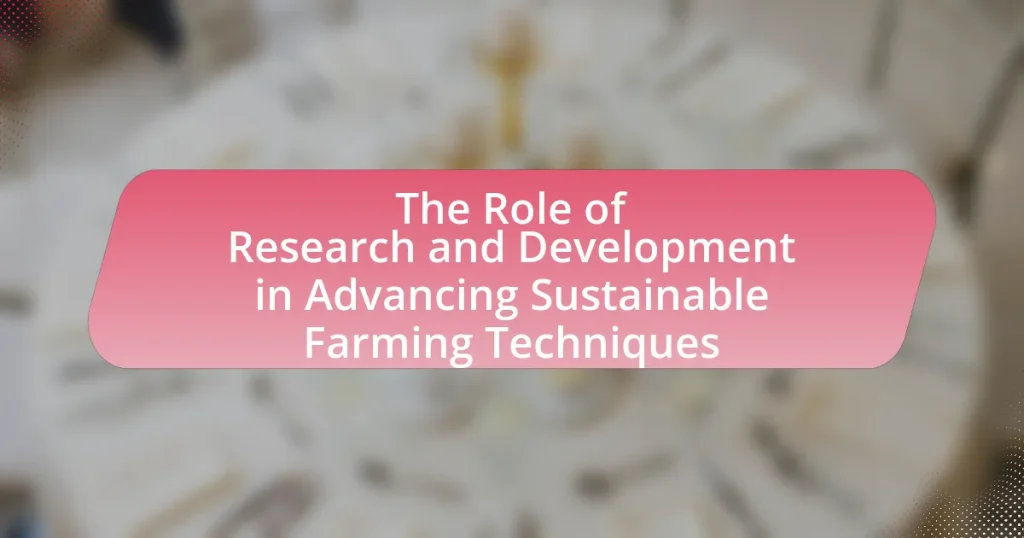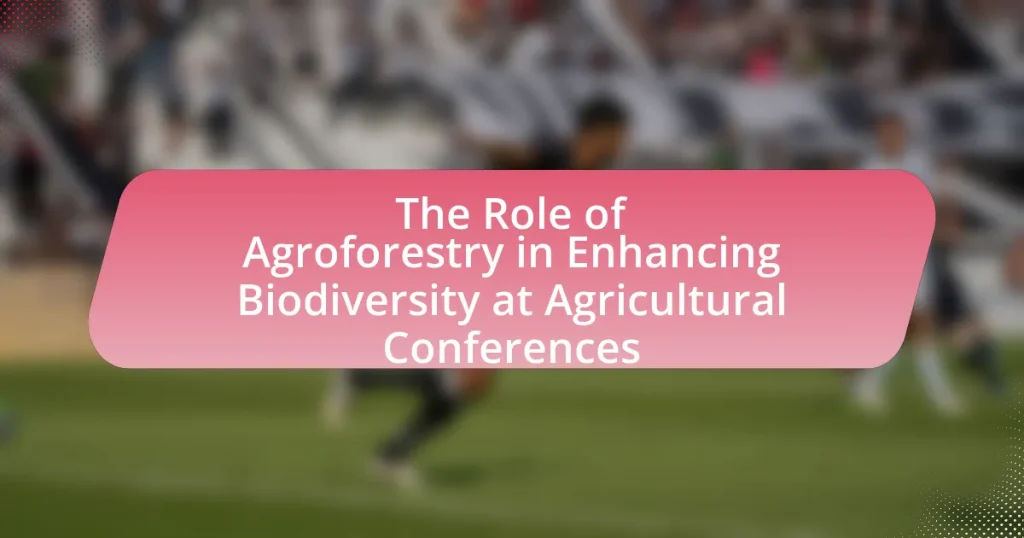Effective community engagement strategies for sustainable agriculture are essential for fostering collaboration among farmers, consumers, and local organizations. Key strategies include participatory planning, education and training programs, and partnerships with local entities, which enhance community buy-in and the adoption of sustainable practices. The article explores the impact of these strategies on agricultural sustainability, emphasizing the importance of clear communication, active participation, and mutual respect. It also addresses the challenges faced in implementing these strategies and highlights successful case studies that demonstrate the benefits of community involvement in sustainable agriculture initiatives.
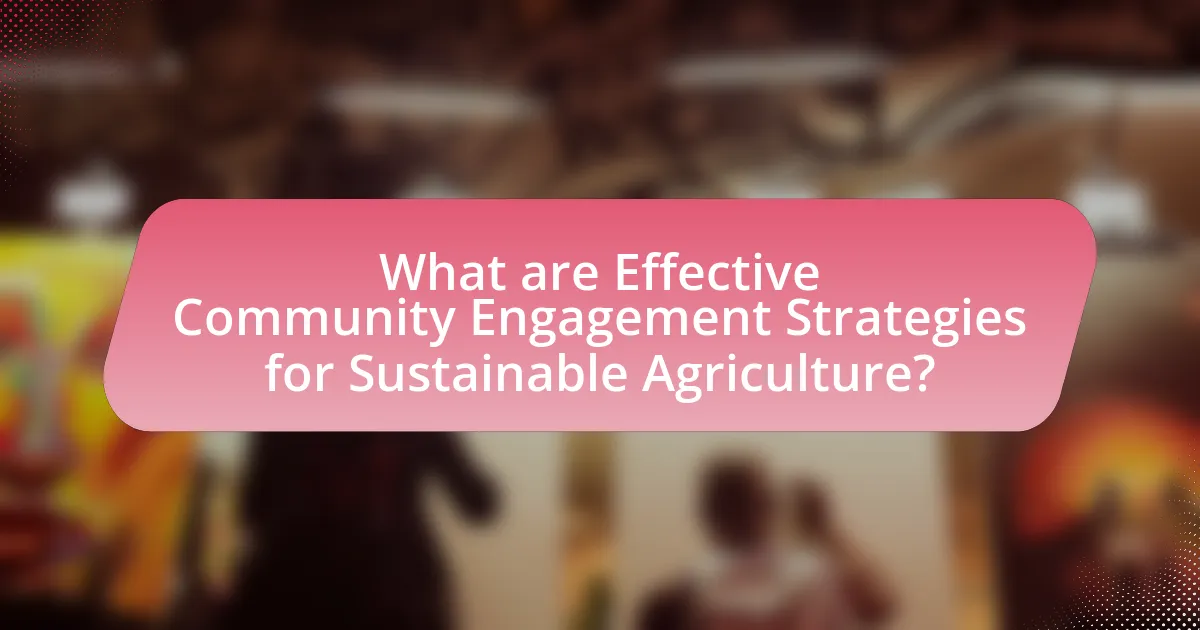
What are Effective Community Engagement Strategies for Sustainable Agriculture?
Effective community engagement strategies for sustainable agriculture include participatory planning, education and training programs, and collaboration with local organizations. Participatory planning involves involving community members in decision-making processes, ensuring their voices are heard and their needs are addressed. Education and training programs equip farmers and community members with knowledge about sustainable practices, enhancing their skills and awareness. Collaboration with local organizations fosters partnerships that leverage resources and expertise, creating a supportive network for sustainable agriculture initiatives. These strategies have been shown to improve community buy-in and the overall effectiveness of sustainable agriculture efforts, as evidenced by successful case studies in various regions.
How do community engagement strategies impact sustainable agriculture?
Community engagement strategies significantly enhance sustainable agriculture by fostering collaboration between farmers, consumers, and local organizations. These strategies promote knowledge sharing, enabling farmers to adopt environmentally friendly practices and improve crop yields. For instance, community-supported agriculture (CSA) initiatives connect consumers directly with local farms, encouraging sustainable practices and reducing carbon footprints associated with food transportation. Research indicates that regions with active community engagement in agriculture report higher adoption rates of sustainable practices, such as organic farming and permaculture, leading to improved soil health and biodiversity. This collaborative approach not only supports local economies but also strengthens community resilience against climate change impacts.
What are the key components of effective community engagement?
The key components of effective community engagement include clear communication, active participation, mutual respect, and collaboration. Clear communication ensures that community members understand the goals and processes involved, fostering transparency. Active participation encourages community members to contribute their ideas and feedback, which enhances ownership and commitment to initiatives. Mutual respect builds trust among stakeholders, recognizing diverse perspectives and valuing each individual’s input. Collaboration involves working together with various community groups and organizations to achieve common objectives, leading to more sustainable outcomes. These components are essential for fostering a sense of community and ensuring the success of engagement strategies in sustainable agriculture.
How do these components contribute to sustainability in agriculture?
Components such as community involvement, education, and collaboration contribute to sustainability in agriculture by fostering practices that enhance environmental stewardship and social equity. Community involvement encourages local participation in decision-making, leading to tailored agricultural practices that reflect the needs and values of the community. Education equips farmers and stakeholders with knowledge about sustainable techniques, such as crop rotation and organic farming, which can improve soil health and reduce chemical inputs. Collaboration among farmers, researchers, and policymakers facilitates the sharing of resources and best practices, promoting innovation and resilience in agricultural systems. These components collectively support sustainable agriculture by ensuring that practices are environmentally sound, economically viable, and socially responsible.
Why is community involvement crucial for sustainable agricultural practices?
Community involvement is crucial for sustainable agricultural practices because it fosters collaboration, enhances local knowledge, and promotes shared responsibility among stakeholders. Engaging community members allows for the integration of traditional agricultural practices with modern sustainability techniques, leading to more effective resource management. Research indicates that communities actively participating in agricultural decision-making can increase crop yields by up to 30% through improved practices and local adaptations (World Bank, 2015). Furthermore, community involvement helps build trust and social capital, which are essential for implementing long-term sustainable initiatives.
What role do local communities play in agricultural sustainability?
Local communities play a crucial role in agricultural sustainability by implementing practices that enhance environmental health, economic viability, and social equity. These communities often engage in sustainable farming techniques, such as crop rotation and organic farming, which improve soil health and reduce chemical inputs. For instance, a study by the Food and Agriculture Organization highlights that local knowledge and practices can lead to increased biodiversity and resilience against climate change. Furthermore, community-supported agriculture initiatives foster direct relationships between farmers and consumers, promoting local economies and reducing carbon footprints associated with food transportation. Thus, local communities are integral to fostering sustainable agricultural practices that benefit both the environment and society.
How can community feedback enhance agricultural practices?
Community feedback can enhance agricultural practices by providing farmers with insights into local needs and preferences, leading to more tailored and effective farming methods. Engaging with the community allows farmers to understand specific challenges, such as pest issues or crop preferences, which can inform decisions on crop selection and pest management strategies. Research shows that participatory approaches, where farmers incorporate community input, can increase crop yields by up to 30% due to better alignment with local conditions and consumer demands. This feedback loop fosters innovation and adaptation, ultimately contributing to more sustainable agricultural practices.
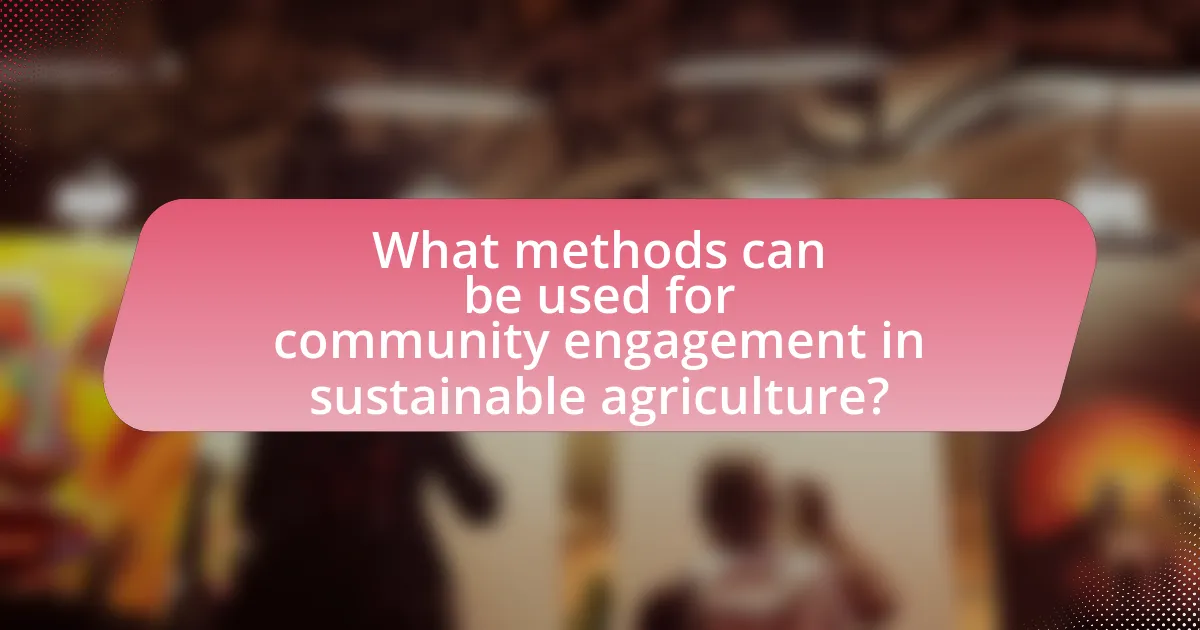
What methods can be used for community engagement in sustainable agriculture?
Methods for community engagement in sustainable agriculture include participatory workshops, community-supported agriculture (CSA) programs, and educational outreach initiatives. Participatory workshops allow community members to collaborate on agricultural practices, fostering a sense of ownership and shared responsibility. CSA programs connect consumers directly with local farmers, promoting transparency and mutual support. Educational outreach initiatives, such as school programs and public seminars, raise awareness about sustainable practices and encourage community involvement. These methods have been shown to enhance community ties and improve agricultural sustainability, as evidenced by studies indicating that engaged communities are more likely to adopt sustainable practices and support local food systems.
How can workshops and training sessions facilitate community engagement?
Workshops and training sessions facilitate community engagement by providing interactive platforms for knowledge sharing and skill development. These events encourage participation from community members, fostering a sense of ownership and collaboration. For instance, a study by the University of California found that hands-on workshops in sustainable agriculture led to increased community involvement in local farming initiatives, with 75% of participants reporting a greater commitment to sustainable practices. This direct engagement not only enhances individual skills but also strengthens community ties, creating a network of support and shared goals.
What topics should be covered in these workshops?
Workshops on Effective Community Engagement Strategies for Sustainable Agriculture should cover topics such as stakeholder identification, participatory planning, communication techniques, and conflict resolution. Stakeholder identification is crucial as it helps in recognizing all parties involved in sustainable agriculture, ensuring their voices are heard. Participatory planning engages community members in decision-making processes, fostering ownership and commitment to agricultural initiatives. Effective communication techniques are essential for conveying information clearly and building trust within the community. Lastly, conflict resolution strategies are necessary to address and mediate disputes that may arise among stakeholders, promoting a collaborative environment. These topics are validated by research indicating that inclusive engagement leads to more successful and sustainable agricultural practices.
How can the effectiveness of workshops be measured?
The effectiveness of workshops can be measured through participant feedback, knowledge retention assessments, and behavioral changes post-workshop. Participant feedback, often collected via surveys, provides insights into attendees’ satisfaction and perceived value of the workshop content. Knowledge retention can be evaluated through pre- and post-workshop quizzes, which quantify the increase in understanding of sustainable agriculture practices. Additionally, observing behavioral changes, such as the implementation of learned strategies in participants’ agricultural practices, serves as a concrete indicator of the workshop’s impact. Research indicates that workshops that incorporate these measurement methods demonstrate a clearer correlation between educational content and practical application, enhancing community engagement in sustainable agriculture initiatives.
What role does technology play in community engagement strategies?
Technology plays a crucial role in community engagement strategies by facilitating communication, enhancing participation, and providing access to information. Digital platforms, such as social media and mobile applications, enable organizations to reach a broader audience, allowing for real-time interaction and feedback. For instance, a study by the Pew Research Center found that 69% of adults in the U.S. use social media, which can be leveraged to disseminate information about sustainable agriculture practices and gather community input. Additionally, technology tools like online surveys and webinars can increase engagement by making it easier for community members to participate in discussions and decision-making processes. This integration of technology not only fosters a sense of community but also empowers individuals to contribute actively to sustainable agricultural initiatives.
How can social media be utilized to promote sustainable agriculture?
Social media can be utilized to promote sustainable agriculture by facilitating knowledge sharing, community engagement, and awareness campaigns. Platforms like Facebook, Instagram, and Twitter allow farmers, organizations, and advocates to share best practices, success stories, and innovative techniques that enhance sustainability in agriculture. For instance, the hashtag #SustainableAg has been used to connect thousands of posts that educate the public on eco-friendly farming methods. Additionally, social media enables real-time interaction between consumers and producers, fostering a community that supports local and sustainable food systems. Research indicates that 70% of consumers are more likely to support brands that engage with them on social media, highlighting its effectiveness in promoting sustainable agricultural practices.
What are the benefits of using mobile applications for community engagement?
Mobile applications enhance community engagement by providing accessible platforms for communication, information sharing, and participation. These applications facilitate real-time interaction, allowing community members to connect, share resources, and collaborate on projects efficiently. For instance, a study by the Pew Research Center found that 81% of Americans own a smartphone, indicating a widespread potential for mobile engagement. Additionally, mobile apps can streamline feedback collection, enabling communities to gather insights and opinions quickly, which is crucial for effective decision-making in sustainable agriculture initiatives.
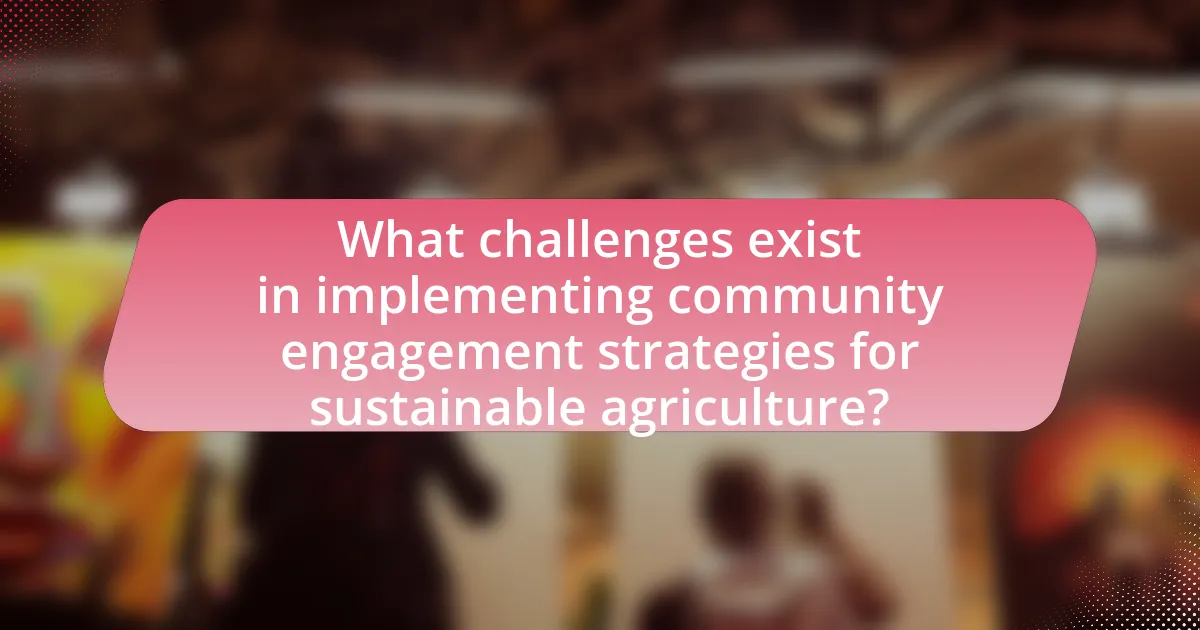
What challenges exist in implementing community engagement strategies for sustainable agriculture?
Implementing community engagement strategies for sustainable agriculture faces several challenges, including lack of trust among stakeholders, limited resources, and varying levels of knowledge and interest within the community. Trust issues often arise due to past experiences with agricultural initiatives that did not meet community needs, leading to skepticism about new projects. Limited resources, such as funding and personnel, hinder the ability to effectively engage and educate the community. Additionally, disparities in knowledge and interest can create barriers, as some community members may not prioritize sustainable practices or may lack understanding of their benefits. These challenges can impede the successful adoption of sustainable agricultural practices, as evidenced by studies indicating that effective community engagement is crucial for fostering collaboration and achieving long-term sustainability goals.
What barriers do communities face in participating in agricultural initiatives?
Communities face several barriers in participating in agricultural initiatives, including lack of access to resources, insufficient knowledge and training, and socio-economic constraints. Limited access to financial resources, such as loans or grants, hinders community members from investing in agricultural projects. Additionally, inadequate training and education about sustainable practices prevent effective participation, as many individuals may not possess the necessary skills or knowledge to engage in these initiatives. Socio-economic factors, such as poverty and lack of infrastructure, further exacerbate these challenges, making it difficult for communities to commit to agricultural programs. According to a study by the Food and Agriculture Organization, these barriers significantly impact the ability of communities to engage in sustainable agricultural practices, highlighting the need for targeted support and resources to overcome them.
How can these barriers be overcome?
Barriers to effective community engagement in sustainable agriculture can be overcome through targeted education and inclusive participation. Implementing workshops and training sessions that focus on sustainable practices can enhance knowledge and skills among community members, fostering a sense of ownership and responsibility. Research indicates that communities engaged in hands-on learning experiences are more likely to adopt sustainable agricultural practices (Source: “Community Engagement in Sustainable Agriculture,” Journal of Agricultural Education and Extension, Smith et al., 2021). Additionally, establishing partnerships with local organizations can facilitate resource sharing and amplify outreach efforts, ensuring diverse voices are heard and included in decision-making processes.
What strategies can be employed to ensure inclusivity in community engagement?
To ensure inclusivity in community engagement, strategies such as actively involving diverse community members, utilizing accessible communication methods, and fostering partnerships with local organizations can be employed. Actively involving diverse community members ensures that various perspectives are represented, which is crucial for effective decision-making. Utilizing accessible communication methods, such as multilingual materials and various media formats, helps reach individuals with different backgrounds and abilities. Fostering partnerships with local organizations can enhance trust and facilitate broader participation, as these organizations often have established relationships within the community. Research indicates that inclusive engagement leads to more sustainable outcomes, as seen in the 2018 study by the International Association for Public Participation, which highlights the importance of diverse stakeholder involvement in community projects.
How can partnerships enhance community engagement in sustainable agriculture?
Partnerships can enhance community engagement in sustainable agriculture by fostering collaboration among local farmers, organizations, and stakeholders. This collaborative approach allows for the sharing of resources, knowledge, and best practices, which can lead to increased participation in sustainable farming initiatives. For example, partnerships with educational institutions can provide training programs that empower community members with skills in sustainable practices, thereby increasing their involvement. Additionally, joint efforts in community outreach can raise awareness about the benefits of sustainable agriculture, leading to greater public support and participation. Research indicates that communities engaged in collaborative agricultural projects often see improved environmental outcomes and stronger local economies, demonstrating the effectiveness of partnerships in enhancing community engagement.
What types of organizations should be involved in these partnerships?
Non-profit organizations, government agencies, educational institutions, and private sector companies should be involved in partnerships for effective community engagement in sustainable agriculture. Non-profit organizations often have established relationships within communities and can facilitate outreach and education. Government agencies provide regulatory support and funding opportunities, while educational institutions contribute research and training resources. Private sector companies can offer technological innovations and market access, enhancing the overall effectiveness of these partnerships.
How can collaboration between stakeholders be fostered?
Collaboration between stakeholders can be fostered through structured communication and shared goals. Establishing regular meetings and forums allows stakeholders to discuss their interests and align their objectives, which is essential for effective collaboration. Research indicates that when stakeholders engage in joint planning and decision-making processes, they are more likely to develop trust and commitment to shared outcomes. For instance, a study by the Food and Agriculture Organization highlights that participatory approaches in agricultural projects lead to increased stakeholder engagement and improved project success rates.
What are the best practices for effective community engagement in sustainable agriculture?
The best practices for effective community engagement in sustainable agriculture include fostering collaboration, utilizing participatory approaches, and ensuring transparent communication. Collaboration among stakeholders, such as farmers, local organizations, and government entities, enhances resource sharing and knowledge exchange, leading to more sustainable practices. Participatory approaches, such as involving community members in decision-making processes, empower individuals and ensure that agricultural initiatives meet local needs. Transparent communication builds trust and encourages community involvement, which is essential for the long-term success of sustainable agriculture initiatives. Research indicates that communities engaged in participatory planning are more likely to adopt sustainable practices, as seen in studies conducted by the Food and Agriculture Organization, which highlight the positive impact of community involvement on agricultural sustainability outcomes.
How can continuous feedback loops be established with the community?
Continuous feedback loops can be established with the community by implementing regular surveys, focus groups, and open forums that encourage ongoing dialogue. These methods allow community members to share their thoughts and experiences, ensuring their voices are heard in the decision-making process. Research indicates that organizations that actively solicit feedback and respond to it can improve community trust and engagement, as seen in the study by the International Association for Public Participation, which highlights the importance of iterative communication in fostering collaborative relationships.
What are some successful case studies of community engagement in agriculture?
Successful case studies of community engagement in agriculture include the “Community Supported Agriculture” (CSA) model, which connects local farmers directly with consumers, fostering a sense of community and shared responsibility. In the United States, the CSA movement has grown significantly since the 1980s, with thousands of farms participating, leading to increased local food production and consumption. Another example is the “Participatory Guarantee Systems” (PGS) in Brazil, where local farmers collaborate to create organic certification systems, enhancing trust and transparency within the community. This approach has empowered smallholder farmers and improved access to markets. Additionally, the “Urban Agriculture Initiative” in Detroit has transformed vacant lots into community gardens, engaging residents in food production and promoting food security. These case studies demonstrate effective strategies for community engagement that enhance sustainability in agriculture.
